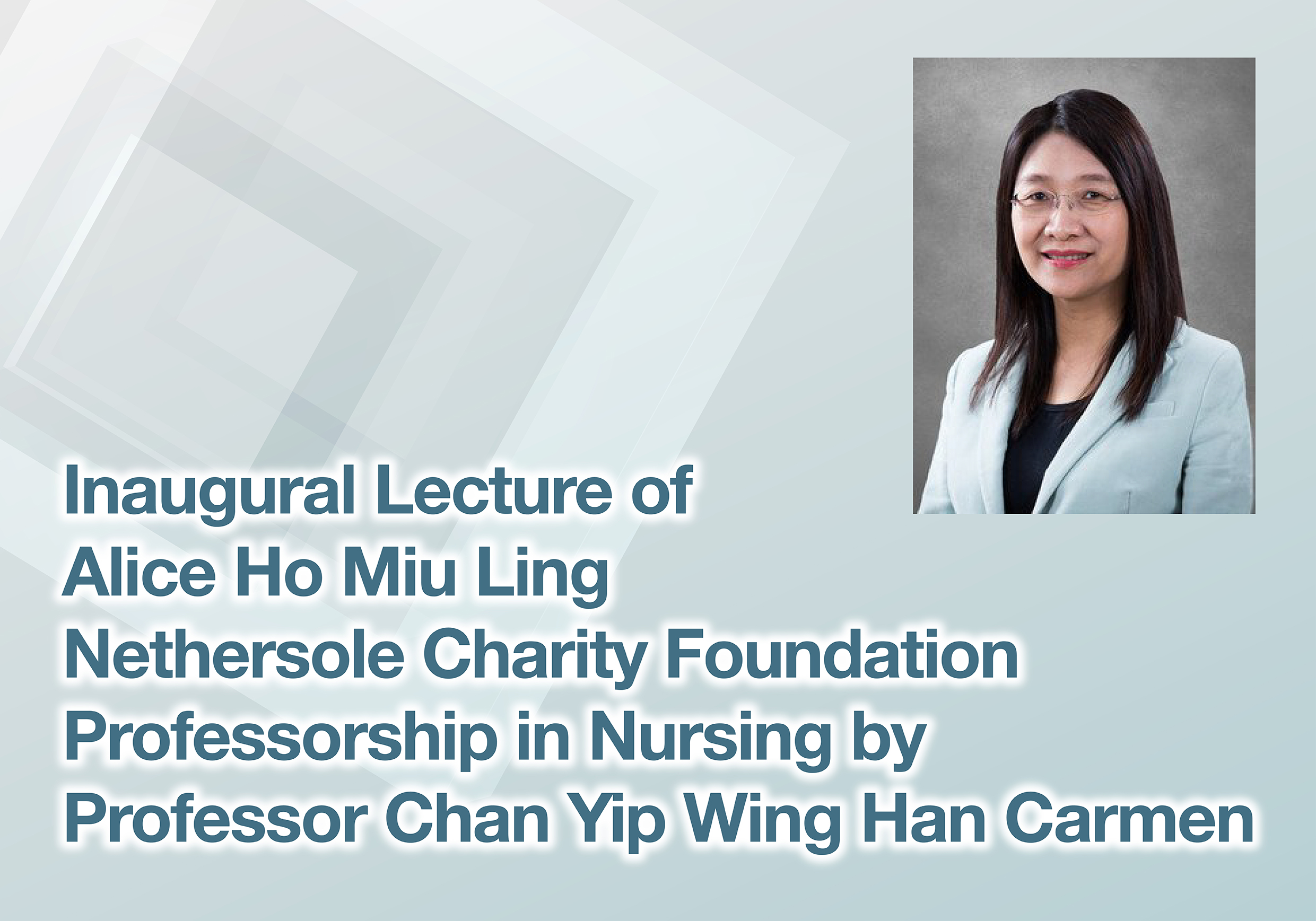活动
Inaugural Lecture of Alice Ho Miu Ling Nethersole Charity Foundation Professorship in Nursing by Professor Chan Yip Wing Han Carmen
2021年9月17日 - 2021年10月31日
Online
Professor Chan Yip Wing Han Carmen
Professor Carmen Chan is Alice Ho Miu Ling Nethersole Charity Foundation Professor of Nursing, Vice-Director of Education of the Nethersole School of Nursing, and Assistant Dean (Education) of the Faculty of Medicine at The Chinese University of Hong Kong. She is also a fellow of the American Academy of Nursing and the Hong Kong Academy of Nursing.
Professor Chan has 30 years of academic experience. She has demonstrated integrated scholarship in cancer and palliative care research which has broadly impacted on the profession, patients, families, community and nursing education. Her research expertise includes symptom management, psychosocial care, and advance care planning to promote dignified death.
Professor Chan and her team conducted large-scale community roadshows and surveys to promote advance care planning and advance directives in Hong Kong when death and dying was still a taboo in the 1990s. Subsequently, they developed and published a Chinese Health Manual for Advance Care Planning, which has been widely distributed to health care professionals and patients. Professor Chan also developed a concept map to predict the acceptance and completion of advance directives among the general public in Hong Kong. Her current research programme focuses on promoting advance care planning in acute care settings.
View the lecture video: https://cutv.cpr.cuhk.edu.hk/detail/1375
End-of-life care decision-making, also known as advance care planning (ACP), is a major element in promoting dignified death. The goal of ACP is to achieve most of the expressed preferences and wishes of the patient, such as avoiding invasive treatment, good symptom control, and organ donation. Many countries have enacted legislation governing the use of Advance Directives (AD), a written document to record the patient’s preferred end-of-life care in advance. In Hong Kong and many other cities in China, AD is promoted but without any legislation to govern its use.
In practice, limited opportunities for effective decision-making communication are reported, as clinicians do not have time for ACP discussions especially in acute care settings. Nurses reported that they found AD-related terminologies difficult for the public to understand. Nurses identified lack of communication skills, available resources and tools, sufficient time and team support as barriers hindering them from implementing ACP.
The need for improvement should not be limited to the palliative care specialty. Instead, it should be extended to cover all other acute care specialties that have a role to play in taking care of dying patients. This lecture will present a research project that aims to develop an innovative multi-media experiential ACP training programme, guided by the Experiential Learning Model and Theory of Planned Behavior, for nurses in acute care settings. The programme consists of a mobile apps tutorial and a skill training workshop with standardised patient encounters.


